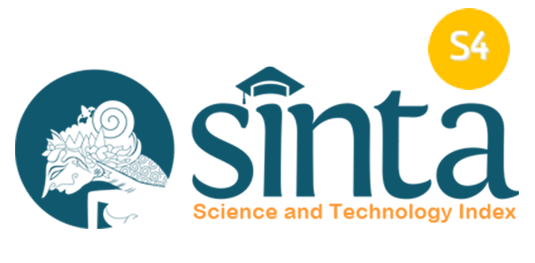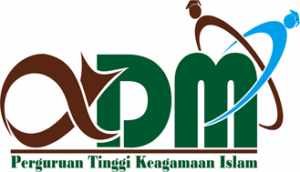Gamification in mathematics education: a bibliometric analysis
Abstract
Keywords
Full Text:
PDFReferences
Ariffin, N. A. N., Ramli, N., Alam, N. M. F. H. N. B., Yusof, Y., & Suparlan, A. (2022). Effectiveness of gamification in teaching and learning mathematics. Journal on Mathematics Education, 13(1), 173–190. https://doi.org/10.22342/jme.v13i1.pp173-190
Bouzid, T., Darhmaoui, H., & Kaddari, F. (2017). Promoting elementary mathematics learning through digital games. 2nd International Conference on Big Data Cloud and Applications, BDCA 2017, Part F1294. https://doi.org/10.1145/3090354.3090451
Feroz, F. S., Devi, S. I., & Subramaniam, S. K. (2020). Undergraduates’ Increased Acceptance and Positive Attitude toward Gamification: Its Relation to Increased Engagement. International Journal of Science, Mathematics and Technology Learning, 27(2), 13–24. https://doi.org/10.18848/2327-7971/CGP/v27i02/13-24
González, C., Mora, A., & Toledo, P. (2014). Gamification in intelligent tutoring systems. In G.-P. F.J. (Ed.), 2nd International Conference on Technological Ecosystems for Enhancing Multiculturality, TEEM 2014 (pp. 221–225). Association for Computing Machinery. https://doi.org/10.1145/2669711.2669903
González Calleros, C. B., García, J. G., & Rangel, Y. N. (2019). A serious game for solving mathematical problems for children with ADHD . Campus Virtuales, 8(2), 121–140. https://www.scopus.com/inward/record.uri?eid=2-s2.0-85080074218&partnerID=40&md5=1de6d66773a31aa13af35e03a32e654f
Hulse, T., Daigle, M., Manzo, D., Braith, L., Harrison, A., & Ottmar, E. (2019). From here to there! Elementary: a game-based approach to developing number sense and early algebraic understanding. Educational Technology Research and Development, 67(2), 423–441. https://doi.org/10.1007/s11423-019-09653-8
Jagust, T., Boticki, I., Mornar, V., & So, H.-J. (2017). Gamified Digital Math Lessons for Lower Primary School Students. In H. K., F. N., M. T., H. S., M. M., & M. M. (Eds.), 6th IIAI International Congress on Advanced Applied Informatics, IIAI-AAI 2017 (pp. 691–694). Institute of Electrical and Electronics Engineers Inc. https://doi.org/10.1109/IIAI-AAI.2017.17
Jiménez, C., Arís, N., Ruiz, Á. A. M., & Orcos, L. (2020). Digital escape room, using Genial.Ly and a breakout to learn algebra at secondary education level in Spain. Education Sciences, 10(10), 1–14. https://doi.org/10.3390/educsci10100271
Landers, R. N. (2014). Developing a theory of gamified learning: Linking serious games and gamification of learning. Simulation & Gaming, 45(6), 752–768.
Lanuza, M. H. (2020). Integrative gamification technique in teaching specialization courses in mathematics. International Journal of Scientific and Technology Research, 9(4), 1275–1281. https://www.scopus.com/inward/record.uri?eid=2-s2.0-85083495427&partnerID=40&md5=4e99ce087ece07c9080ec594b2648ba6
Lanuza, M. H., Mendoza, R. V, Bayan, R. J. R., Elipane, L., Dimaculangan, K. A. C., & Hilario, F. F. (2020). A gamification technique through the method of a lesson study in teaching probability. International Journal of Scientific and Technology Research, 9(4), 3734–3740. https://www.scopus.com/inward/record.uri?eid=2-s2.0-85085034346&partnerID=40&md5=8481fc18c6920192ecefbfa5ce58b7f3
Robledo-Rella, V., De Lourdes Quezada Batalla, M., Ramirez-De-Arellano, J. M., & Acosta, R. D. S. (2022). Gam-mate: Gamification Applied to an Undergrad Discrete Math Course. 10th International Conference on Information and Education Technology, ICIET 2022, 135–139. https://doi.org/10.1109/ICIET55102.2022.9778998
Salvatierra Melgar, Á., Augusto Luy-Montejo, C., Pérez Saavedra, S. S., Huaman Almiron, A. E., Walter Arturo, Q.-C., & Emperatriz Mercado-Marrufo, C. (2021). Gamification in the Learning of Mathematics in University Students. International Journal of Early Childhood Special Education, 13(2).
Stoyanova, M., Tuparova, D., & Samardzhiev, K. (2017). Gamification in 11th grade mathematics lessons – One possible interactive approach. In A. M.E., U. J., & G. D. (Eds.), 19th International Conference on Interactive Collaborative Learning, ICL 2016 (Vol. 545, pp. 41–53). Springer Verlag. https://doi.org/10.1007/978-3-319-50340-0_4
Stoyanova, M., Tuparova, D., & Samardzhiev, K. (2018). Impact of motivation, gamification and learning style on students’ interest in maths classes – a study in 11 high school grade. In A. M.E., S. I., & G. D. (Eds.), 20th International Conference on Interactive Collaborative Learning, ICL 2017 (Vol. 716, pp. 133–142). Springer Verlag. https://doi.org/10.1007/978-3-319-73204-6_17
Su, C.-H. (2017). Designing and developing a novel hybrid adaptive learning path recommendation system (ALPRS) for gamification mathematics geometry course. Eurasia Journal of Mathematics, Science and Technology Education, 13(6), 2275–2298. https://doi.org/10.12973/EURASIA.2017.01225A
Supriyadi, E. (2022). A Bibliometric Analysis: Computer Science Research From Indonesia. TIERS Information Technology Journal, 3(1), 28–34. https://doi.org/10.38043/tiers.v3i1.3706
Surendeleg, G., Murwa, V., Yun, H.-K., & Kim, Y. S. (2014). The role of gamification in education–a literature review. Contemporary Engineering Sciences, 7(29), 1609–1616.
Swacha, J. (2021). State of research on gamification in education: A bibliometric survey. Education Sciences. https://www.mdpi.com/994286
Tan, C.-W., Yu, P.-D., Lin, L., Fung, C.-K., Lai, C.-K., & Cheng, Y. (2017). Teaching computational thinking by gamification of k-12 mathematics: Mobile app math games in mathematics and computer science tournament. In K. S.-C., S. J., & L. I. R.K.-Y. (Eds.), 1st International Conference on Computational Thinking Education, CTE 2017 (pp. 55–59). The Education University of Hong Kong.
Udjaja, Y., Guizot, V. S., & Chandra, N. (2018a). Gamification for elementary mathematics learning in Indonesia. International Journal of Electrical and Computer Engineering, 8(5), 3859–3865. https://doi.org/10.11591/ijece.v8i5.pp3859-3865
Udjaja, Y., Guizot, V. S., & Chandra, N. (2018b). Gamification for elementary mathematics learning in Indonesia. International Journal of Electrical and Computer Engineering, 8(5), 3860–3865. https://doi.org/10.11591/ijece.v8i5.pp3860-3865
Yildirim, I. (2017). The effects of gamification-based teaching practices on student achievement and students’ attitudes toward lessons. Internet and Higher Education, 33, 86–92. https://doi.org/10.1016/j.iheduc.2017.02.002
Yung, O. C., Junaini, S. N., Kamal, A. A., & Md Ibharim, L. F. (2020). 1 Slash 100%: Gamification of mathematics with hybrid QR-based card game. Indonesian Journal of Electrical Engineering and Computer Science, 20(3), 1453–1459. https://doi.org/10.11591/ijeecs.v20.i3.pp1453-1459
DOI: https://doi.org/10.18860/ijtlm.v5i1.17879
Refbacks
- There are currently no refbacks.
Copyright (c) 2023 Edi Supriyadi

This work is licensed under a Creative Commons Attribution-NonCommercial-ShareAlike 4.0 International License.
Indexed by :
.png)
.jpg)
.png)

.jpg)



